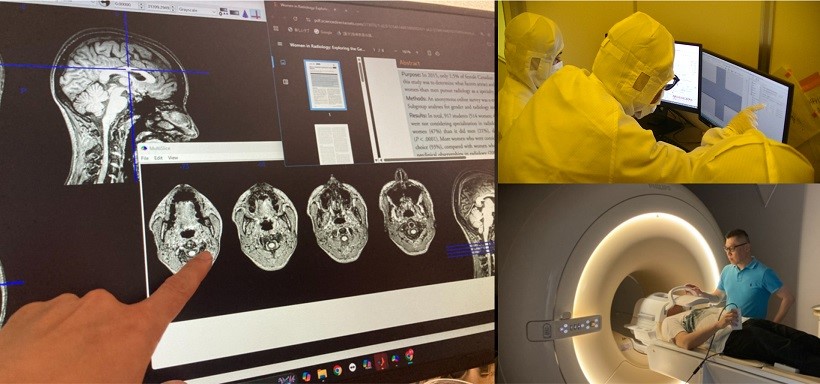New values of biomedical imaging pioneered by “fusion of humanities and sciences”
Fusion of "Pursuing of image quality in science and engineering" and "Pursuing quality of medical care from the perspective of neuroscience and psychology"
The discovery of knowledge in clinical medicine and life sciences has been supported by constant development efforts and technological advances in various imaging devices and other biomedical measurement modalities. To contribute to the technological progress, we are working on the development of quantum biomedical instrumentation technologies using radiation such as X-rays and γ-rays, including nuclear medicine technologies (e.g., positron emission tomography (PET)) and imaging modalities on radiology (e.g., X-ray CT). Our research approach is featured by the construction of technologies from interdisciplinary perspectives; “science and engineering perspectives” such as imaging engineering, semiconductor engineering, and physics, and “perspectives with humanities elements” such as psychology and brain science. Through this unique approach, we aim to propose new values never seen in biomedical engineering so far.
The first technological value, which is from the science and engineering perspective, is to achieve image performances that exceed the physical limitations. There are physical limitations to image performances in each of medical imaging modalities, and for example, imaging techniques called as “super-resolution imaging” refer to technologies that achieve a resolution that exceeds such upper limit determined by such physical constraints. To construct such novel imaging technologies, we are conducting R&D on both hardware and software.
Another new value we envision is “medical engineering technology that contributes to maximizing the performance of physicians and other medical professionals and avoiding medical accidents and errors. While technological improvements in science and engineering are certainly essential to the advancement of medicine, the ultimate value of technology is determined by the quality of medical care that is provided to patients by the healthcare professionals who utilize these technologies. We apply methodologies and knowledge from fields other than science and engineering, such as brain science and psychology, and conducts research to establish a method of technology evaluation and optimization that integrates the humanities and sciences, based on biometric information to infer the thoughts and psychology that medical professionals evoke from developed technologies.



 Associate Professor
Associate Professor